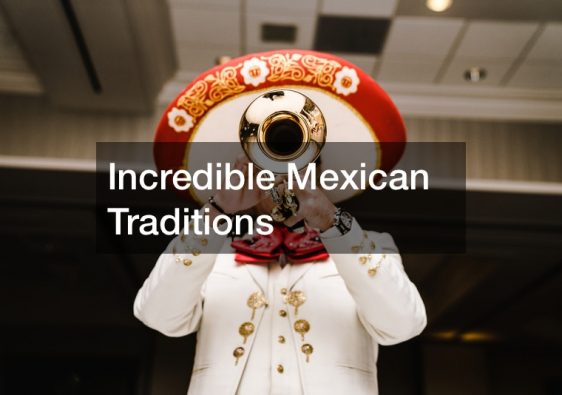
Destination weddings are a unique blend of adventure and romance, offering couples the opportunity to exchange vows in stunning locales while embarking on a memorable journey with their loved ones. However, orchestrating such an event requires meticulous planning and attention to detail. In this comprehensive guide, we will delve into the intricacies of logistically planning a destination wedding, ensuring that every aspect is thoughtfully considered to create a seamless and unforgettable experience.
1. How to Choose the Perfect Destination?

1.1 Consider Your Budget
One of the first steps in planning a destination wedding is selecting the perfect location. Begin by considering your budget, as different destinations come with varying price tags. Whether you dream of saying I do on a pristine beach or amidst the majestic mountains, it’s essential to weigh the cost of venue, accommodations, and travel expenses against your budgetary constraints.
1.2 Evaluate Travel Accessibility
Accessibility is another crucial factor to consider when choosing a destination. Evaluate the ease of travel for both you and your guests, taking into account factors such as flight availability, airport proximity, and transportation options upon arrival. Opting for a destination with convenient travel routes can simplify logistics and make the experience more enjoyable for everyone involved.
1.3 Research Local Wedding Laws
Before finalizing your destination, research the local wedding laws and regulations to ensure compliance with legal requirements. Some countries may have residency or documentation prerequisites for couples looking to tie the knot, so it’s essential to familiarize yourself with the necessary procedures well in advance.
2. When is the Best Time to Have a Destination Wedding?
2.1 Weather Considerations
The timing of your destination wedding can significantly impact the overall experience. Consider the weather patterns of your chosen destination and aim to select a date that aligns with the climate you desire. Whether you envision basking in the summer sun or embracing the charm of a winter wonderland, planning around favorable weather conditions can enhance the ambiance of your special day.
2.2 Peak Season vs. Off-Season
Be mindful of peak tourist seasons when scheduling your destination wedding, as prices tend to surge, and venues may be more crowded. Alternatively, opting for the off-season can offer cost savings and a more intimate atmosphere, allowing you and your guests to enjoy the destination without the hustle and bustle of peak crowds.
2.3 Local Events and Holidays
Take into account local events and holidays that may coincide with your wedding date, as these can impact availability, accommodations, and overall ambiance. While celebrating amidst a cultural festival or local celebration can add vibrancy to your wedding experience, it’s essential to plan accordingly and anticipate any logistical challenges that may arise.
3. What are the Essential Pre-Wedding Travel Arrangements?

3.1 Booking Flights
Once your destination and wedding date are set, it’s time to coordinate travel arrangements for you and your guests. Encourage early booking to secure favorable rates and ensure availability, especially during peak travel seasons. Consider arranging group flights or securing a block of seats to streamline the booking process and potentially qualify for group discounts.
3.2 Accommodation Reservations
Reserving accommodations well in advance is paramount to ensure that you and your guests have a comfortable stay during the wedding festivities. Explore a variety of lodging options, ranging from all-inclusive resorts to boutique hotels and private villas. Don’t forget to inquire about group rates or wedding packages that may include special perks or amenities for your guests, such as access to on-site med spas or discounted rates for extended stays.
3.3 Transportation Plans
In addition to flights and accommodations, consider the transportation logistics at your destination. Arrange for airport transfers or shuttle services to transport guests from the airport to their accommodations seamlessly. For the wedding day itself, explore transportation options for moving between venues, ensuring that everyone arrives promptly and safely to each event.
4. How to Create and Manage a Destination Wedding Budget?
4.1 Understanding Venue Costs
Venue costs often constitute a significant portion of a destination wedding budget, so it’s essential to understand the pricing structure and any additional fees involved. Inquire about package deals, inclusive amenities, and potential upgrades to maximize value while staying within budget.
4.2 Allocating for Travel Expenses
When budgeting for a destination wedding, it’s crucial to account for travel expenses not only for yourselves but also for your guests. Consider offering financial assistance or travel subsidies for guests facing financial constraints to ensure that everyone can share in your special day without undue burden.
4.3 Miscellaneous Costs to Consider
In addition to the major expenses, don’t overlook the miscellaneous costs that can quickly add up during the planning process. From skin adhesive tape for wardrobe malfunctions to unexpected gratuities and incidentals, allocating a buffer in your budget for unforeseen expenses can provide peace of mind and prevent any last-minute financial stress.
5. Should You Hire a Wedding Planner?

5.1 Benefits of Local Wedding Planners
While some couples may opt for a DIY approach to wedding planning, enlisting the expertise of a local wedding planner can offer invaluable support and insider knowledge. Local planners are familiar with the destination’s vendors, venues, and logistical nuances, streamlining the planning process and alleviating stress for the couple.
5.2 DIY Planning Tips
For couples who prefer a hands-on approach, there are plenty of resources and tools available to facilitate DIY wedding planning. From online web design platforms for creating wedding websites to comprehensive planning checklists and budget spreadsheets, embracing technology can empower couples to plan their dream destination wedding with confidence.
5.3 How to Vet a Wedding Planner
If you decide to hire a wedding planner for your destination wedding, it’s essential to vet potential candidates thoroughly. Schedule consultations with multiple planners to discuss your vision, budget, and expectations. Ask for references, review portfolios, and inquire about their experience coordinating weddings in your chosen destination to ensure a seamless partnership.
6. How to Handle Guest Accommodations and Travel?
6.1 Group Discounts and Packages
Facilitate the travel planning process for your guests by offering group discounts or curated travel packages. Collaborate with hotels or travel agencies to negotiate special rates and amenities for your wedding guests, such as room blocks, welcome gifts, or organized excursions.
6.2 Providing Travel Information
Communicate essential travel information to your guests in advance to facilitate their planning and preparation. Create a comprehensive travel guide or wedding website detailing transportation options, accommodation recommendations, local attractions, and cultural insights to enhance their overall experience.
6.3 Welcoming Your Guests
Extend a warm welcome to your guests upon their arrival at the destination. Consider hosting a welcome reception or cocktail hour to greet guests personally, distribute welcome bags with essential items and local treats, and provide them with a detailed itinerary of wedding events and activities.
7. What are the Most Overlooked Details in Destination Weddings?

7.1 Legal Paperwork and Documentation
Navigating the legal requirements of a destination wedding can be complex, so it’s essential to prioritize paperwork and documentation well in advance. Research marriage license requirements, translation services, and any additional documentation needed to ensure that your marriage is legally recognized both at home and abroad.
7.2 Health and Safety Protocols
Prioritize the health and safety of your guests by implementing luxury portable restroom facilities and sanitation protocols throughout the wedding festivities. Provide ample hand sanitizer stations, disinfecting wipes, and masks for guests’ convenience and peace of mind, especially in light of current global health concerns.
7.3 Backup Plans for Weather
While destination weddings often evoke visions of sunny skies and balmy breezes, it’s essential to have contingency plans in place for inclement weather. Whether it’s securing a backup indoor venue or renting tents and umbrellas for outdoor celebrations, proactive planning can mitigate the impact of unexpected weather disruptions.
8. How to Coordinate with Vendors Remotely?
8.1 Utilizing Technology for Communication
Technology can be a valuable ally in coordinating with vendors remotely throughout the wedding planning process. Leverage video conferencing tools, email communication, and project management platforms to stay connected with vendors, discuss details and address any questions or concerns that may arise. Consider utilizing specialized services such as jukebox leasing service for entertainment needs, coordinating logistics seamlessly from afar.
8.2 Trustworthy Vendor Recommendations
Seek recommendations from trusted sources or local wedding planners when sourcing vendors for your destination wedding. Review vendor portfolios, testimonials, and references to ensure quality and reliability. Whether it’s selecting a florist, caterer, or restroom trailers provider, prioritize vendors who align with your vision and demonstrate professionalism and expertise.
8.3 Scheduling Meetings and Tastings
Despite the distance, schedule in-person meetings or tastings whenever possible to finalize details and sample offerings firsthand. Coordinate with vendors to arrange convenient meeting times during your pre-wedding visits to the destination. Whether it’s scheduling a tasting with Mexican food distributors or conducting a walkthrough with the venue coordinator, these interactions can provide valuable insights and peace of mind.
9. How to Plan Pre-Wedding and Post-Wedding Events?
9.1 Pre-Wedding Activities and Rehearsal Dinners
Extend the wedding celebration by planning pre-wedding activities and rehearsal dinners for you and your guests to enjoy. From welcome parties and beach bonfires to cultural excursions and spa days, incorporating additional events into your itinerary can enhance the overall experience and create lasting memories.
9.2 The Wedding Day Timeline
Craft a detailed wedding day timeline to ensure that every aspect of the celebration runs smoothly and according to plan. Coordinate with
key vendors and wedding party members to establish a timeline that accounts for hair and makeup appointments, transportation logistics, ceremony and reception schedules, and any additional activities or photo sessions. Consider factors such as used cooking oil recycling for eco-friendly catering options or special cultural traditions that may influence the flow of events, ensuring a cohesive and unforgettable experience for you and your guests.
9.3 Post-Wedding Brunch and Activities
Extend the festivities beyond the wedding day with a post-wedding brunch or farewell gathering for your guests. Provide recommendations for local attractions and activities, such as sightseeing tours, water sports, or exploring things to do in Puerto Plata, allowing guests to continue their vacation and create cherished memories in the destination.
10. How to Make Your Wedding Unique and Memorable?
10.1 Personalizing Your Venue
Infuse your personality and style into the wedding decor and ambiance by personalizing your venue. Whether it’s incorporating meaningful mementos, family heirlooms, or custom signage, outdoor storage solutions can transform outdoor spaces into enchanting settings that reflect your unique love story and create a lasting impression on your guests.
10.2 Choosing Unique Entertainment
Elevate the entertainment factor of your destination wedding by selecting unique and interactive entertainment options. From live bands and cultural performers to jukebox leasing service for a retro vibe or fire dancers for a dramatic flair, curating memorable entertainment experiences can captivate guests and keep the celebration alive long into the night.
10.3 Offering Personalized Guest Favors
Show your appreciation to guests for sharing in your special day by offering personalized wedding favors that reflect the destination or your shared interests. Consider local specialties, artisanal crafts, or customized keepsakes that guests can treasure as a token of your gratitude and the memories shared during your destination wedding experience.
Conclusion
Planning a destination wedding involves navigating a myriad of logistical considerations, from selecting the perfect location to coordinating travel arrangements and vendor logistics. However, with proper organization and insights from this guide, you can embark on this journey with confidence, knowing that every detail has been thoughtfully addressed to create an unforgettable experience for you and your guests. Remember, the key to a successful destination wedding is to start early, stay organized, and embrace the process with joy and enthusiasm. Cheers to love, adventure, and a lifetime of cherished memories at the destination of your dreams!




